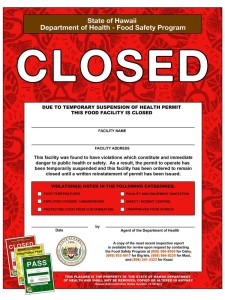 Investigations by environment health officers uncovered a series of hygiene failings at both Herbs and Spices takeaway in Oldswinford and Hayes Cafe in Lye.
Investigations by environment health officers uncovered a series of hygiene failings at both Herbs and Spices takeaway in Oldswinford and Hayes Cafe in Lye.
Dudley Council led the prosecution against the businesses, which both received a hygiene rating of zero from their inspections.
The October 2014 inspection of Herbs and Spices takeaway, in Hagley Road, found dirty and defective equipment and dirty floors, ceilings and worktops.
They also found staff had failed to protect food from a risk of contamination, procedures to deal with pests were inadequate and food safety hazards had not been assessed.
Owner Muhammed Ahmad pleaded guilty to seven offences under the food hygiene regulations at Dudley Magistrates Court on Thursday, July 2.
He was fined £4,669, ordered to pay costs of £2,052.60 and a victim surcharge of £67. The court heard improvements had been made and the premises now has a satisfactory hygiene rating of three out of five.









